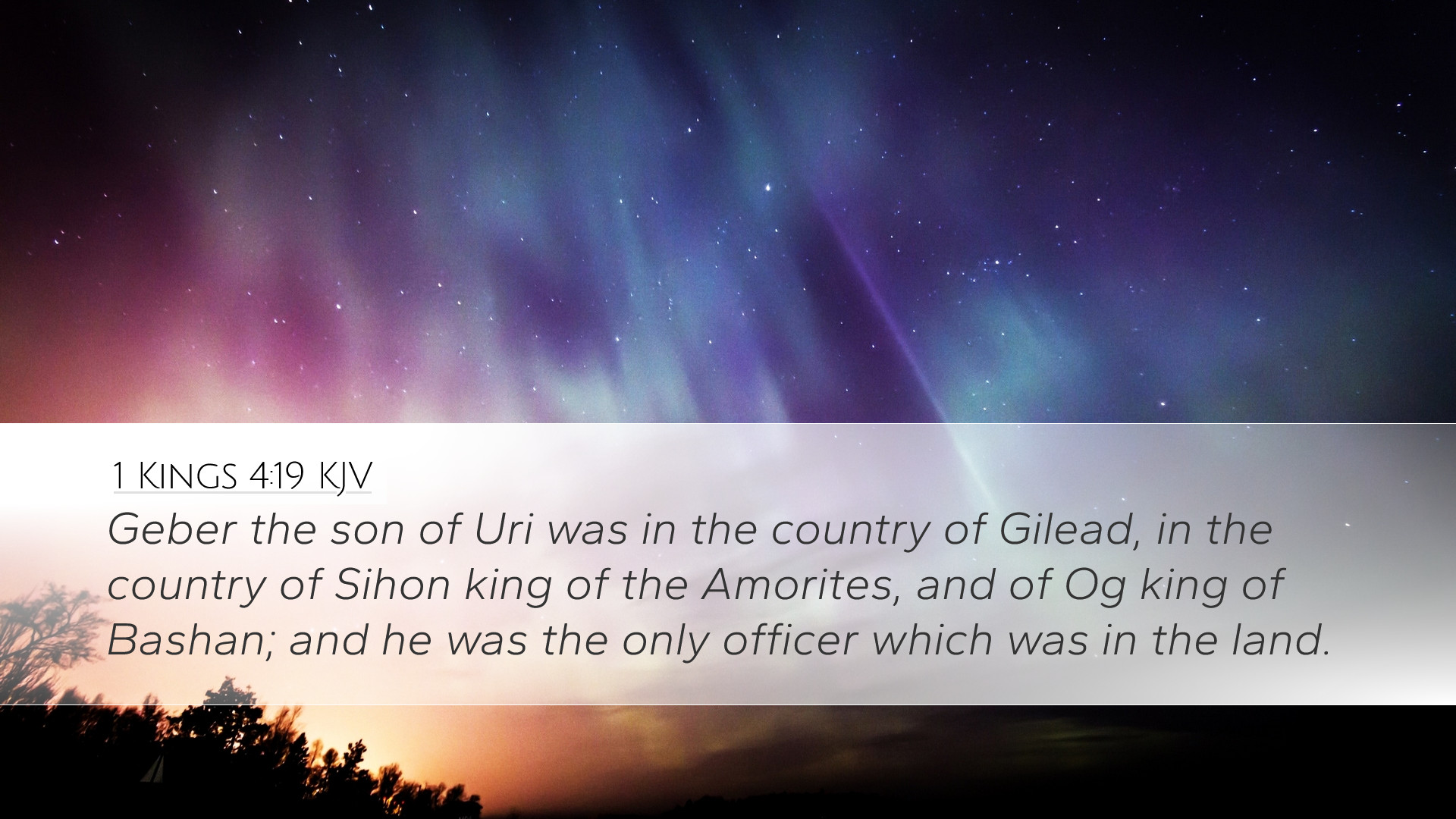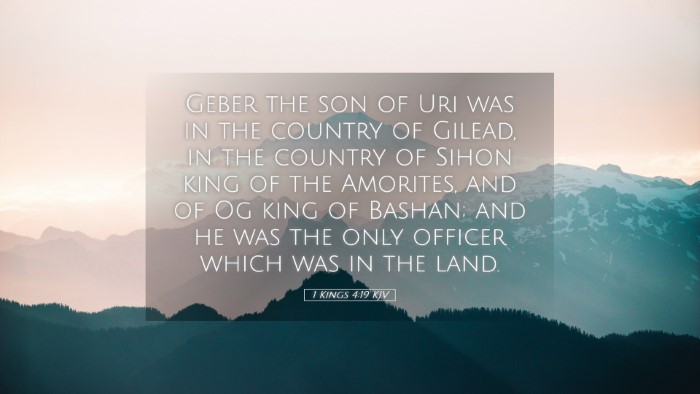Commentary on 1 Kings 4:19
Bible Verse: "Geber the son of Uri was in the land of Gilead, the country of Sihon king of the Amorites, and of Og king of Bashan; and he was the only officer which was in the land."
Introduction
The verse encapsulates a significant period in ancient Israel's history, discussing the administrative structure instituted by King Solomon. By examining this passage, we can glean insights into the government of Israel under Solomon's reign, as well as theological implications reflective of God’s providence and the fulfillment of divine promises.
Contextual Analysis
This verse is part of a larger passage that details Solomon's governance and the organization of his officers. Verses leading up to this highlight Solomon's extensive achievements—his wisdom, wealth, and the peace he enjoyed, as well as his strategic appointments to ensure effective administration.
Solomon's Reign
- Political Stability: Solomon’s reign is characterized by unprecedented peace and a flourishing economy, providing a favorable backdrop for the governance described in this verse.
- Administrative Wisdom: Solomon’s choice of officials reflects his wisdom, a theme emphasized throughout the book of Proverbs and his requests to God.
Character Study: Geber the Son of Uri
Geber's role indicates an important aspect of governance—local administration. His position emphasizes the necessity of capable leaders in distant territories, which were vital for maintaining order and support for the monarchy.
Significance of His Location
- Gilead: Geber's administration in Gilead, a region previously beset by struggles, shows Solomon's outreach to stabilize and govern those areas effectively.
- Sihon and Og: The mention of these kings not only invokes historical narratives but signifies God’s power in establishing Israel in lands formerly governed by formidable foes.
Theological Implications
This passage raises several theological themes worthy of consideration:
- Divine Sovereignty: The control of the land over which Geber governs showcases the sovereign oversight of God in Israel's history and its fulfillment of the promises made to Abraham, Isaac, and Jacob.
- Fully Realized Promises: The land of Gilead and territories of Sihon and Og signify the completion of God's promise to Israel, noting the historical and spiritual significance of claiming these lands as part of God’s fulfillment.
Lessons for Today
The governance of Solomon, exemplified in the role of Geber, provides timeless lessons for contemporary leadership in the church and broader community:
- Integrity in Leadership: Leaders are tasked with the responsibility of serving their communities, highlighting the need for transparency and integrity akin to Geber's role.
- Vision and Strategy: Understanding the context in governance is crucial; leaders must assess the needs of their communities, just as Solomon appointed officers based on territories and historical contexts.
- God’s Providence: Trusting in God’s direction and acknowledging His sovereignty over every aspect of our lives remains vital for effective ministry and community leadership.
Conclusion
1 Kings 4:19 takes us beyond a mere historical account; it emphasizes the interplay of divine sovereignty, wise leadership, and the fulfillment of God's promises in the life of His people. It challenges modern leaders to embrace these principles in their own endeavors, ensuring that they serve with diligence and in accordance with God’s will.


